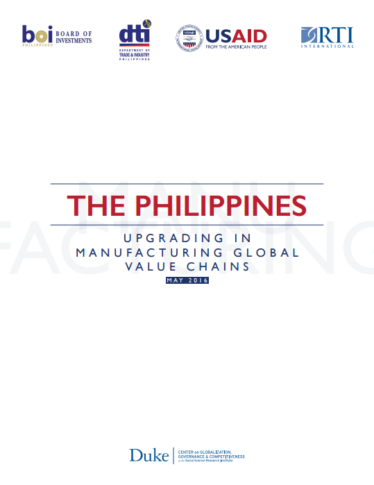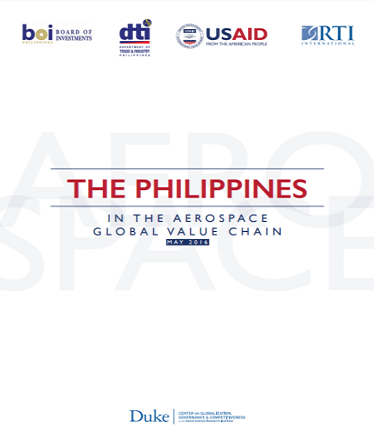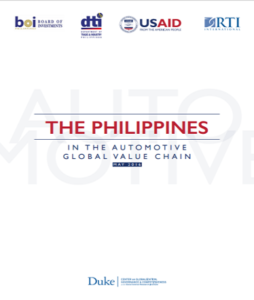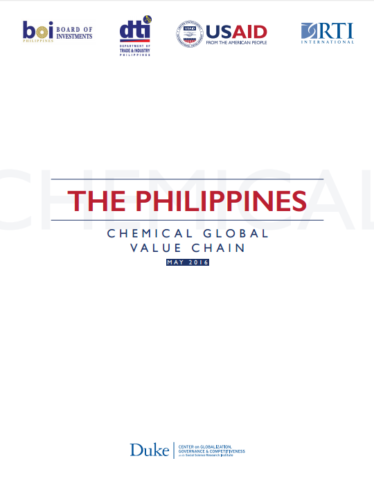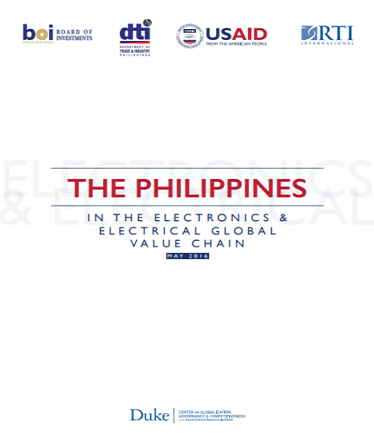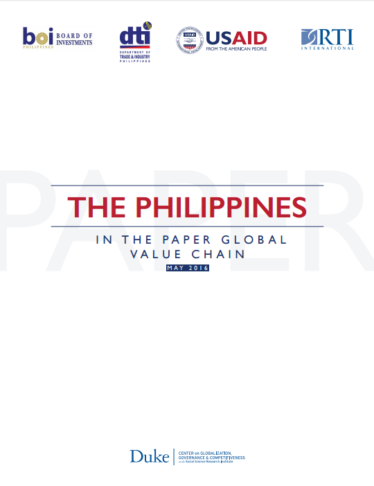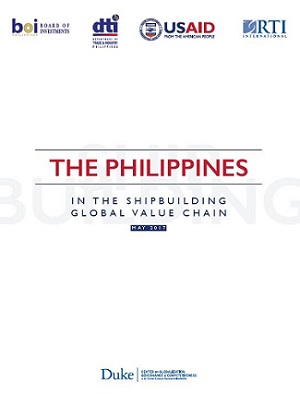 How can countries formulate policies and programs that enable firms to enter and upgrade in a value chain? This is a question many policymakers are grappling with in the quest to improve national competitiveness.
How can countries formulate policies and programs that enable firms to enter and upgrade in a value chain? This is a question many policymakers are grappling with in the quest to improve national competitiveness.
For example, the Philippine Board of Investments (BOI), the industry development and investment promotion arm of the Department of Trade & Industry (DTI), and the United States Agency for International Development (USAID) Philippines, through the Science, Technology, Research, and Innovation program (STRIDE) and USAID Advancing Philippine Competitiveness Project (COMPETE) conducted two research projects with Duke GVCC to support the Philippine’s new industry development policies.
The objective was to understand the participation of the Philippines in various value chains. The first project focused on manufacturing GVCs and included aerospace, automotive, chemicals, electronics & electrical, paper, and shipbuilding. The studies highlighted the Philippines progress in manufacturing GVCs on multiple fronts: public-private coordination; a growing and quick-learning workforce; and efficient export processing zones, among others that have laid the foundation for improving competitiveness. The second focused on agricultural industries and examined the coffee, cocoa, rubber, mango sectors. The ultimate goal was to provide a set of recommendations to the government of the Philippines to enhance the participation and upgrading in the industries selected.
